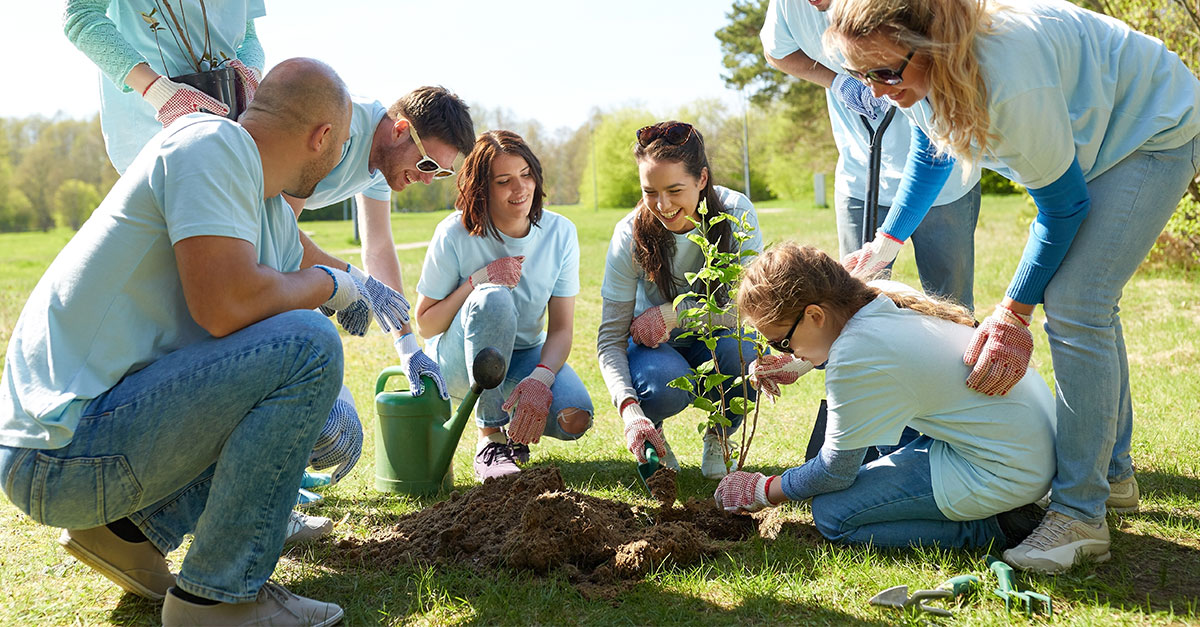Civic Health in 2021: How to Engage With Your Community

If you’re like me, you’re probably concerned about the civic health of our nation. Our public discourse is increasingly vitriolic, all efforts at bipartisan initiatives seem to collapse due to partisanship, and many of us are even growing polarized against people in our lives that we care about but who vote differently and see the world through a different lens.
Finding Common Ground in a Fractured Nation
The recent violence at the Capitol is just the latest sign that we as a nation are fractured. But despite the challenges we face, I remain optimistic that we can forge a path together and find common ground.
I am reminded of another difficult time in United States history. President Abrama Lincoln surveyed the rolling hills of Gettysburg, mourning all the wounded and dead from one of the nation’s bloodiest battles. In his famous address on the battlefield that day, Lincoln began by reminding those gathered of the great proposition to which America was and is dedicated to: that each of us are created equal, and that each of us possess inalienable dignity and worth. Lincoln spoke of the War as a “great testing” to see if a nation so conceived could continue to endure. And Lincoln ends his speech by calling those gathered that day, but also each of us now, to be dedicated to the great task of proving that proposition by demonstrating its truth in how we conduct ourselves as Americans.
We are not in a civil war, despite what it may seem like on social media. And yet I think Lincoln’s speech is directly applicable to our moment in time. How can we dedicate ourselves to the work that Lincoln spoke about, and how can we model that civic engagement for our children?
How to Model Civic Engagement for Our Children
In a blog post I wrote on civic engagement, I noted that we must always begin in our local community:
True and lasting change begins slowly, often imperceptibly, and on a very small level. If you focus on being a supportive spouse, an engaged parent, a dependable worker, and an upstanding member of the community, you’ll be sending ripples through the pond and will be helping make America a better place.
The great thing about the local community is that it allows for relationships on a human scale. We may use the term “friends,” to talk about connections on Facebook, yet most of us probably agree that virtual interactions are never as deep or sustaining as the face-to-face encounters we have with the people we live next door to, work alongside, attend church services and baseball games with.
I wrote about Senator Sasse’s book Them: Why We Hate Each Other – And How To Heal. Senator Sasse wrote in that book that we are experiencing profound loneliness as a nation and that our incessant fighting on social media only increases that loneliness. Instead of frittering away our time on Facebook debates, Senator Sasse advises that we build lasting relationships with our neighbors:
He writes: “neighbors see today’s conversation not as the last discussion we’ll ever have, but as a precursor to tomorrow’s. We can and will visit again. We can continue talking and listening. We can be open to future persuasion – and to being persuaded.
When we engage with flesh-and-blood people, maybe helping fix that flat tire, shovel that sidewalk, or share those homemade cookies, we are able to remember that none of us are just a walking collection of political ideas. Each of us are far deeper than simply the voting choice we made in November. And Senator Sasse notes that when we remember that, then even when we disagree, and even when we are motivated to help our candidate win, we realize that “we need not win everything by force, and we need not win everything right now.” Tomorrow will be another opportunity to reason together, and tomorrow will also be an opportunity to serve one another and celebrate life together.
I’ll say one last thing. As the 24-hour news cycle continues to try and interrupt our lives, I have found great solace in returning to the important texts of our nation’s history. Whether it is the Constitution itself, the speeches of Abraham Lincoln, James Madison writing on the problem of factions in The Federalist Papers (particularly Federalist 10), or Alexis de Tocqueville’s insights in Democracy in America, I find these writings to be a source of hope. I recommend revisiting these central texts as a foundation for renewing our dedication to those aspirational ideas that have shaped our nation.
Further Reading
At Demme Learning, we believe in the power of parental engagement in all areas of education, including civic formation. Check out our blog series on how parents can help their kids grow into responsible citizens who are engaged in civic life.